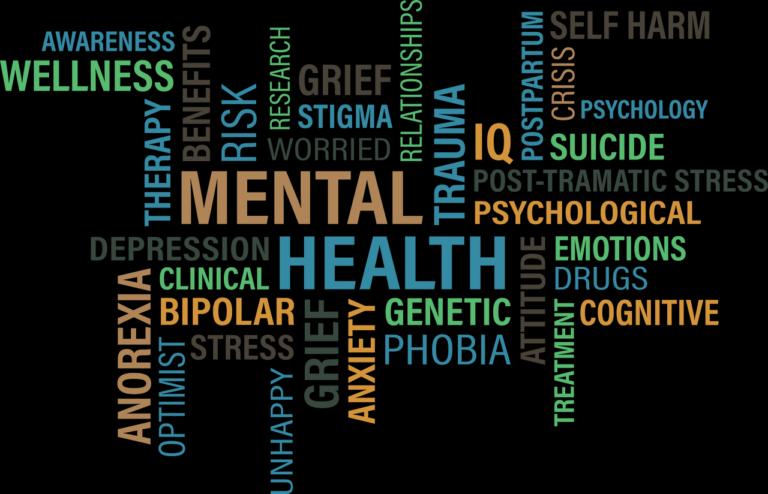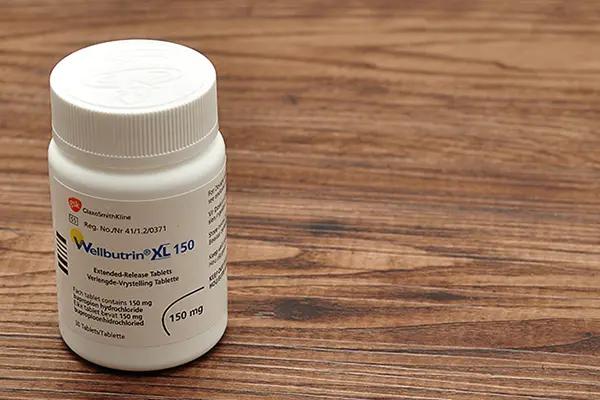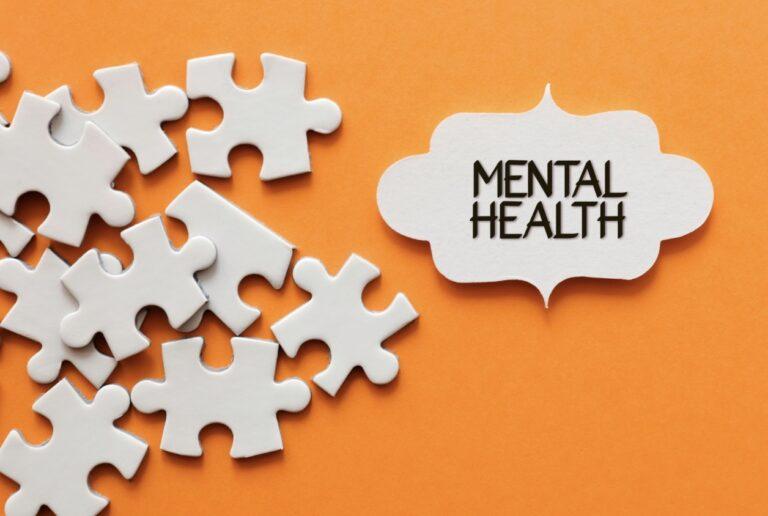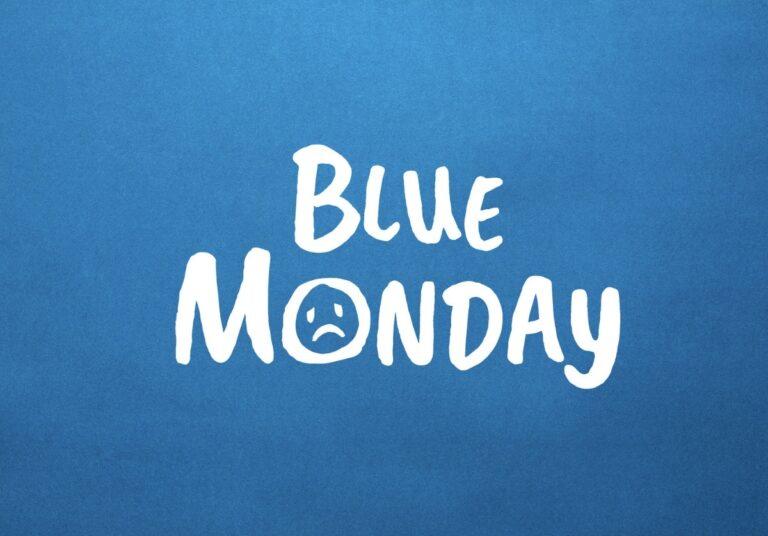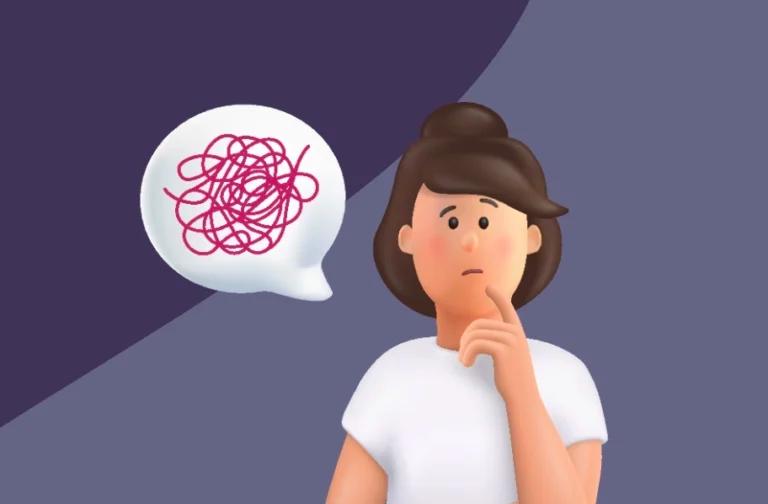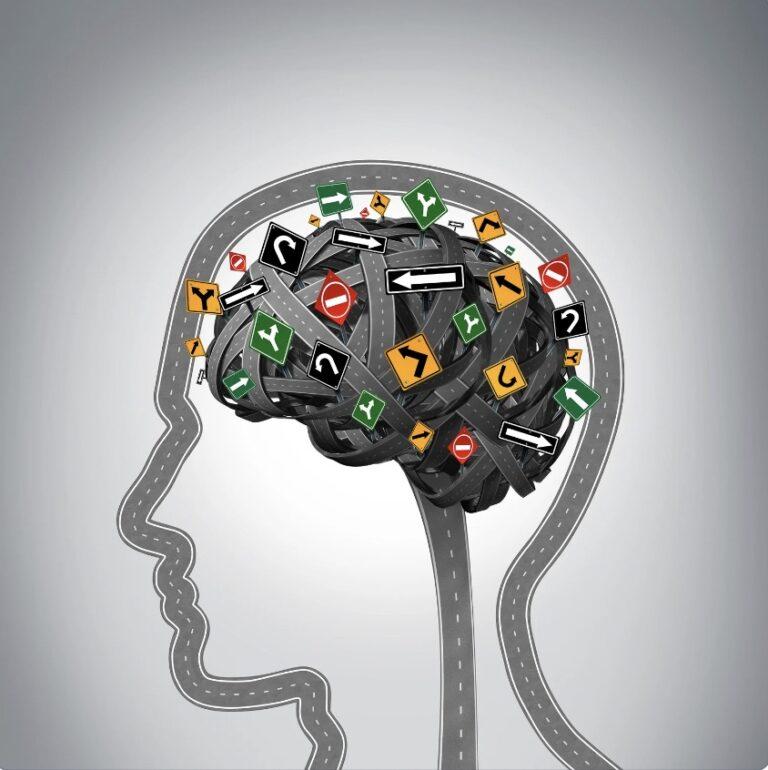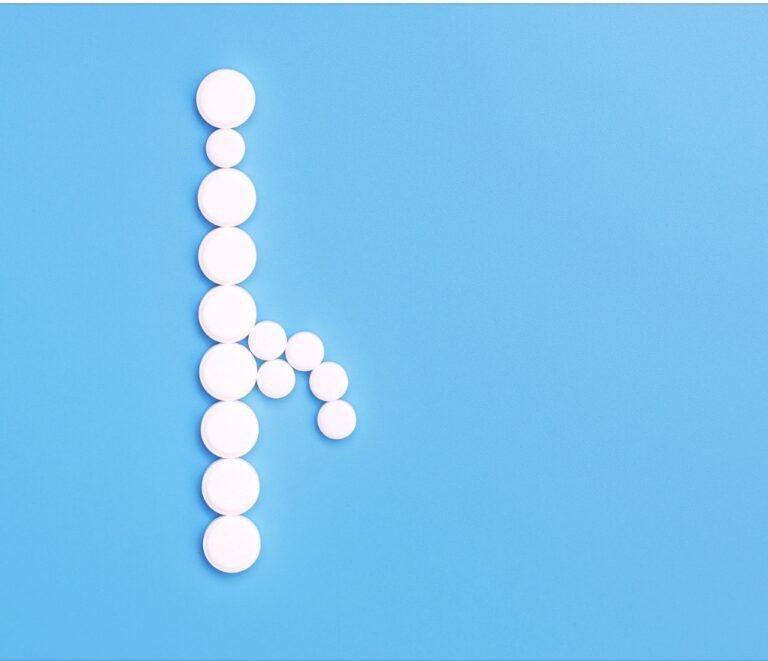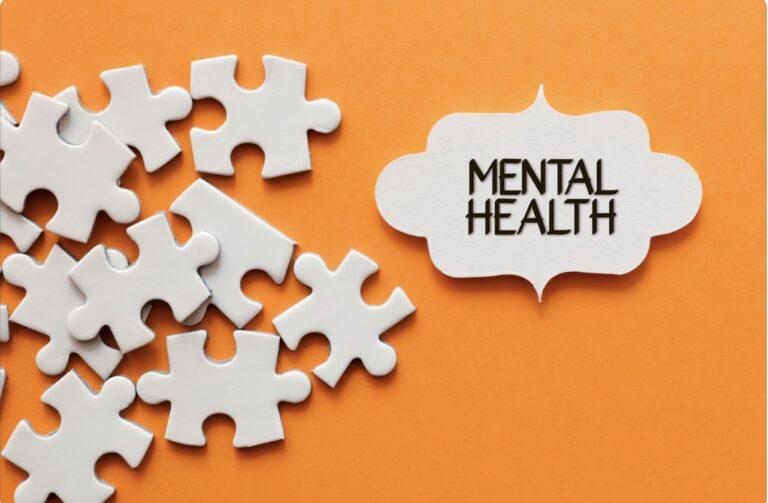Depression
Get valuable insights into Depression, including its causes, symptoms, prevention strategies, and treatment options, while also learning about how you can lower the cost of the medications used to treat Depression.
MEDICAL INFORMATION
Depression Key Facts
Related Medications
Clinical depression (major depressive disorder or major depression) is a common mental health disorder that affects millions of people worldwide. It can have a significant impact on a person’s daily life, relationships, and overall well-being. Here, we aim to provide you with an in-depth understanding of depression, including its causes, symptoms, and available treatment options.
What is the definition of depression?
Depression is a mental health disorder characterized by persistent feelings of sadness, hopelessness, and a loss of interest or pleasure in activities. It goes beyond the normal fluctuations in mood that people experience and significantly impacts a person’s thoughts, emotions, behavior, and overall functioning. Depression can vary in severity, ranging from mild to severe, and may occur as a single episode or as a recurring condition. It is important to note that depression is different from occasional feelings of sadness or grief, as it involves a prolonged and pervasive disruption of normal emotional functioning.
What are the risk factors of depression?
Depression can result from a combination of various factors, including biological, psychological, and environmental influences. While it can affect anyone, certain factors may increase the risk of developing depression. These risk factors include:
Family History
Having a family history of depression or other mental health disorders increases the risk of developing depression. Genetic factors play a role in predisposing individuals to the condition
Personal History
Individuals with a previous history of depression or other mental health disorders are at a higher risk of experiencing future episodes
Brain Chemistry
Imbalances in brain chemicals, particularly neurotransmitters like serotonin, norepinephrine, and dopamine, are associated with depression. Alterations in these neurotransmitters can impact mood regulation
Gender
Women are more likely to experience depression than men. Hormonal changes during puberty, pregnancy, and menopause, as well as the influence of female sex hormones, may contribute to the increased risk
Age
Depression can occur at any age, but certain life stages carry a higher risk. For example, teenagers, adolescents, young adults, and individuals in late adulthood may be more susceptible to depression
Trauma or Adverse Life Events
Traumatic experiences, such as physical or emotional abuse, neglect, loss of a loved one, or significant life changes (e.g., divorce, job loss), can increase the risk of developing depression
Chronic Illness or Medical Conditions
Certain medical conditions, such as chronic pain, cancer, diabetes, cardiovascular disease, and neurological disorders, can increase the risk of depression
Substance Abuse
Substance abuse, including excessive alcohol or drug use, is closely linked to depression. Substance abuse can contribute to the development of depression, and vice versa
Personality Factors
Certain personality traits, such as low self-esteem, pessimism, perfectionism, and a tendency to overthink or worry, may increase the vulnerability to depression
Social Isolation
Lack of social support, feelings of loneliness, or social isolation can contribute to the risk of depression
Having Children
Postpartum depression is a type of depression that parents can have after having a baby.
Seasonal Changes
Seasonal affective disorder which is commonly known as “winter depression” is a type of depression characterized by significant changes to mood and behavior whenever the seasons change.
It’s important to note that having one or more of these risk factors doesn’t guarantee the development of depression. However, they can increase the likelihood of experiencing depressive symptoms, and it’s essential to be aware of these factors to take proactive steps for prevention or early intervention.
What are the causes of depression?
The exact causes of depression are not fully understood, but it is believed to result from a combination of genetic, biological, environmental, and psychological factors. Here are some key factors that contribute to the development of depression:
Biological factors
- Brain Chemistry Imbalance: Neurotransmitters, which are chemicals that regulate mood, may be imbalanced in individuals with depression. Specifically, low levels of serotonin, norepinephrine, and dopamine are often associated with depressive symptoms
- Hormonal Factors: Hormonal changes, such as those occurring during puberty, pregnancy, postpartum period, and menopause, can influence mood regulation and contribute to the development of depression
- Genetic Factors
- Family History: Having a family history of depression or other mood disorders increases the likelihood of developing depression. Certain genes may contribute to the vulnerability to depressive symptoms
Environmental factors
- Early Life Experiences: Adverse childhood experiences, such as abuse, neglect, or trauma, can have long-lasting effects on emotional well-being and increase the risk of depression later in life
- Life Stressors: Significant life events, such as the loss of a loved one, relationship problems, financial difficulties, or job loss, can trigger depressive episodes
- Social Factors: Social isolation, lack of support systems, or poor social relationships can contribute to the development of depression
Psychological factors
- Personality Traits: Certain personality traits, such as low self-esteem, pessimism, and a tendency to ruminate or engage in negative thinking patterns, can make individuals more susceptible to depression
- Cognitive Factors: Distorted thinking patterns, negative self-perceptions, and dysfunctional cognitive processes can contribute to the maintenance of depressive symptoms
It’s important to note that the causes of depression are complex and multifaceted. Different individuals may have varying combinations of these factors contributing to their depression.
What is the pathophysiology of depression?
The exact biological mechanisms underlying depression are complex and not fully understood. However, research suggests the involvement of several neurochemical, neuroendocrine, and neuroplasticity processes. Some key aspects of the pathophysiology of depression include:
- Neurotransmitter imbalance: Serotonin, norepinephrine, and dopamine are neurotransmitters that regulate mood. Low levels of these neurotransmitters, particularly serotonin, have been associated with depression
- HPA Axis dysregulation: The hypothalamic-pituitary-adrenal (HPA) axis, which is involved in stress response, may be dysregulated in individuals with depression. This can lead to abnormal levels of cortisol, the stress hormone
- Inflammation: There is evidence of increased inflammation in individuals with depression. Inflammatory markers and immune system dysregulation may contribute to the development and persistence of depressive symptoms
- Neuroplasticity: Structural and functional changes in certain brain regions involved in mood regulation, such as the prefrontal cortex, hippocampus, and amygdala, have been observed in depression. These changes can affect emotional processing, cognition, and stress response
It’s important to note that the pathophysiology of depression is complex and multifaceted. Different individuals may have varying combinations of these factors contributing to their depression.
What are the signs and symptoms of depression?
Depression can manifest differently in individuals, but common signs and symptoms of depression include:
Persistent Sadness
Feeling sad, empty, or having a depressed mood most of the day, nearly every day. This sadness is different from normal fluctuations in mood
Loss of Interest or Pleasure
Loss of interest or pleasure in activities once enjoyed, including hobbies, socializing, or sex. A lack of motivation and reduced enthusiasm for life may be observed
Significant Weight Changes
Unexplained weight loss or weight gain, along with changes in appetite. These changes are not attributed to intentional dieting or lifestyle choices
Sleep Disturbances
Insomnia, characterized by difficulty falling asleep, staying asleep, or experiencing non-restorative sleep. In some cases, individuals may experience hypersomnia (excessive sleepiness) and find it difficult to get out of bed
Fatigue and Lack of Energy
Feeling tired, physically drained, or lacking energy, even with minimal exertion. Tasks that were once manageable may feel overwhelming
Feelings of Worthlessness or Guilt
Experiencing persistent feelings of worthlessness, excessive guilt, or self-blame. Individuals may excessively criticize themselves or believe they are a burden to others
Difficulty Concentrating
Trouble concentrating, making decisions, or experiencing mental fog. Memory problems may also arise
Psychomotor Changes
Observable changes in psychomotor function, such as restlessness, agitation, or slowed movements and speech
Recurrent Thoughts of Death or Suicide
Recurrent thoughts of death, suicidal ideation, or suicide attempts. It’s important to take any mention or indication of suicide seriously and seek immediate help
Physical Symptoms
Physical symptoms such as headaches, digestive problems, chronic pain, and other unexplained physical complaints may be present
It’s essential to note that these symptoms should be experienced most of the day, nearly every day, for at least two weeks to meet the diagnostic criteria for depression. However, everyone’s experience with depression is unique, and some individuals may not exhibit all of these symptoms. It is crucial to consult a healthcare professional for an accurate diagnosis and appropriate treatment.
What are the stages of depression?
Depression does not have clearly defined stages like some other medical conditions. However, the course of depression can vary from person to person and may involve different phases or patterns. It’s important to note that not everyone with depression will experience these stages, and the severity and duration of each stage can vary. Here are some general descriptions that may help in understanding the progression of depression:
Mild depression
- This stage typically involves mild symptoms that may be present for a few weeks
- The individual may experience some difficulties in daily functioning and notice a slight impact on mood and energy levels
- Symptoms may include feeling down, low motivation, mild sleep disturbances, and a general sense of unease or unhappiness
Moderate depression
- In this stage, symptoms become more pronounced and persistent
- The individual may experience a significant impact on daily life, including work, relationships, and self-care
- Symptoms may include prolonged sadness, increased feelings of hopelessness, changes in appetite and sleep patterns, difficulty concentrating, and reduced interest in activities once enjoyed
Severe depression
- This stage is characterized by severe and pervasive symptoms that significantly affect daily functioning
- The individual may struggle to engage in normal activities and may have difficulty getting out of bed or completing basic tasks
- Symptoms may include intense feelings of despair, persistent thoughts of self-harm or suicide, severe disturbances in sleep and appetite, profound loss of interest in activities, difficulty concentrating or making decisions, and physical symptoms such as unexplained aches or pains
What are the various types of depression?
- Clinical Depression: This is when a doctor has clinically diagnosed depression
- Recurrent depression disorder: This is If you’ve had at least 2 depressive episodes, your doctor might say that you have a recurrent depressive disorder. They may also say that your current ‘episode’ is ‘mild’, ‘moderate’ or ‘severe’
- Reactive Depression: This is if your doctor thinks that your depression was triggered by difficult events in your life, such as divorce or major events
- Dysthymia: This is when you are experiencing continuous mild depression that lasts for over 2 years. This is also called persistent depressive disorder or chronic depression
- Cyclothymia: You may be diagnosed with cyclothymia if you experience persistent and unstable moods. You may have periods of depression and periods of elation, but these periods may not be severe enough or long enough to be diagnosed as bipolar disorder
- Psychotic Depression: This is when you experience a severe episode of depression where you may present with hallucinations or delusions. These symptoms are called psychosis
- Prenatal or Postpartum Depression
- Seasonal Affective Disorder: This occurs if you experience depression during particular seasons, or because of certain types of weather. Its most common during winter. Mood or energy levels drop when it gets colder or warmer, or notice changes in your sleeping or eating patterns
How is depression diagnosed?
Depression is typically diagnosed through a comprehensive assessment conducted by a healthcare professional, such as a psychiatrist, psychologist, or primary care physician. The diagnosis is based on the evaluation of symptoms, medical history, and ruling out other potential causes of the symptoms. Here are the key steps involved in the diagnostic process for depression:
Initial assessment
The healthcare professional will conduct a thorough interview to gather information about the individual’s symptoms, duration, and severity. They will ask about the individual’s medical history, including any previous episodes of depression or other mental health conditions, family history of depression, and any significant life events or stressors
Symptom evaluation
The healthcare professional will assess the presence and severity of various symptoms associated with depression, such as persistent sadness, loss of interest or pleasure, changes in appetite and sleep patterns, fatigue, difficulty concentrating, feelings of worthlessness or guilt, and thoughts of death or suicide. They may use standardized questionnaires or rating scales to aid in the assessment
Medical evaluation
It is essential to rule out any underlying medical conditions that may contribute to or mimic depressive symptoms. The healthcare professional may conduct a physical examination, order blood tests, or recommend other diagnostic tests to assess the individual’s overall health and identify any medical conditions that may be present
Diagnostic criteria (US)
The healthcare professional will refer to the Diagnostic and Statistical Manual of Mental Disorders (DSM-5), published by the American Psychiatric Association, which outlines specific criteria for diagnosing depressive disorders. The criteria include the presence of certain symptoms, their duration, and the impact on daily functioning
Diagnostic criteria (UK)
The healthcare professional will refer to NICE diagnostic guidelines if there the patient exhibits risk factors, non-specific symptoms or any symptoms listed by NICE
Differential diagnosis
The healthcare professional will differentiate depression from other mental health conditions that may have similar symptoms, such as anxiety disorders, bipolar disorder, or adjustment disorders
Treatment planning
Once the diagnosis is confirmed, the healthcare professional will develop an appropriate treatment plan tailored to the individual’s specific needs. Treatment options may include psychotherapy, medication, lifestyle changes, and support services
It’s important to seek professional help if you suspect you or someone you know may be experiencing depression. A proper diagnosis and early intervention are crucial for effective treatment and management of depression.
How is depression prevented?
Preventing depression entirely is not always possible as it can be influenced by various factors, including genetic predisposition, life circumstances, and chemical imbalances in the brain. However, certain strategies and lifestyle choices may help reduce the risk of developing depression or mitigate its severity. Here are some preventive measures that can be beneficial:
- Build a strong support system: Cultivate positive and supportive relationships with friends, family, and loved ones. Seek social connections, engage in meaningful interactions, and participate in activities that promote a sense of belonging and support
- Manage stress: Develop effective stress management techniques, such as practicing relaxation exercises, mindfulness, or engaging in activities that help relieve stress. This can help reduce the impact of stress on mental well-being
- Maintain a healthy lifestyle: Adopting a healthy lifestyle can have a positive impact on mental health. Focus on regular physical exercise, a balanced diet rich in nutrients, adequate sleep, and avoiding substance abuse
- Develop coping skills: Learn and practice effective coping skills to deal with life’s challenges and setbacks. This may include problem-solving techniques, positive self-talk, and developing resilience
- Recognize early warning signs: Be aware of the early signs of depression, such as persistent feelings of sadness, changes in appetite or sleep patterns, loss of interest in activities, and difficulties in concentration or decision-making. Promptly seek professional help if you notice these symptoms
- Prioritize self-care: Make self-care a priority by engaging in activities that bring joy, relaxation, and fulfillment. This may include pursuing hobbies, engaging in creative outlets, practicing mindfulness or meditation, or taking time for self-reflection and self-compassion
- Address underlying mental health issues: If you have other mental health conditions, such as anxiety or substance abuse disorders, it’s important to seek appropriate treatment and manage these conditions effectively. Untreated or poorly managed co-occurring disorders can increase the risk of depression
- Seek professional help: If you have a family history of depression or have experienced depressive episodes in the past, consider consulting with a mental health professional. They can provide guidance, support, and help develop personalized strategies for preventing depression
What are the treatment and management options for depression?
The treatment and management options for depression may vary depending on the severity of symptoms, individual needs, and preferences. It’s important to consult with a healthcare professional for an accurate diagnosis and to develop a personalized treatment plan. Here are some common approaches to treating and managing depression:
Psychotherapy
Psychotherapy, also known as talk therapy or counseling, is a common treatment for depression. Different types of therapy, such as cognitive-behavioral therapy (CBT), interpersonal therapy (IPT), or psychodynamic therapy, can help individuals identify negative thought patterns, develop coping skills, improve interpersonal relationships, and make positive behavioral changes
Medication
Antidepressant medications may be prescribed by a healthcare professional to help alleviate symptoms of depression. Selective serotonin reuptake inhibitors (SSRIs) and serotonin-norepinephrine reuptake inhibitors (SNRIs) are commonly prescribed antidepressants. It’s important to take medication as prescribed and communicate any concerns or side effects with the prescribing healthcare professional
Brain stimulation therapies
In some cases, when other treatments have not been effective, brain stimulation therapies may be considered. These include electroconvulsive therapy (ECT), transcranial magnetic stimulation (TMS), or vagus nerve stimulation (VNS). These therapies aim to modulate brain activity and alleviate depressive symptoms
Self-care and lifestyle changes
Adopting a healthy lifestyle can support overall mental well-being. This includes regular exercise, a balanced diet, sufficient sleep, stress reduction techniques (e.g., mindfulness, relaxation exercises), avoiding substance abuse, and engaging in activities that promote self-care and self-expression
Support network
Building a strong support network and seeking support from family, friends, or support groups can provide emotional support, understanding, and a sense of connection. Support networks can offer a valuable source of encouragement and help individuals navigate through difficult times
Stress management
Developing effective stress management techniques, such as time management, setting realistic goals, and practicing relaxation techniques, can help reduce stress and improve overall mental well-being
Complementary and alternative therapies
Some individuals may find benefit from complementary and alternative therapies, such as acupuncture, yoga, meditation, or herbal supplements. It’s important to discuss these options with a healthcare professional and ensure they are used in conjunction with other recommended treatments
Continued monitoring and follow-up
Regular monitoring of symptoms, progress, and side effects is crucial. It allows healthcare professionals to make adjustments to the treatment plan as needed and provide ongoing support. Follow-up appointments are essential to assess the effectiveness of treatment and address any concerns
It’s important to remember that not all treatments work the same for everyone, and a combination of approaches may be necessary. It’s essential to work closely with a healthcare professional to find the most effective treatment plan tailored to individual needs and circumstances.
What medications are used in depression?
Selective Serotonin Reuptake Inhibitors (SSRIs)
- Fluoxetine (Prozac)
- Sertraline (Zoloft)
- Escitalopram (Lexapro)
- Paroxetine (Paxil)
- Citalopram (Celexa)
Serotonin-Norepinephrine Reuptake Inhibitors (SNRIs)
- Venlafaxine (Effexor)
- Duloxetine (Cymbalta)
- Desvenlafaxine (Pristiq)
Tricyclic Antidepressants (TCAs)
- Amitriptyline
- Nortriptyline
- Imipramine
- Clomipramine
Monoamine Oxidase Inhibitors (MAOIs)
- Phenelzine (Nardil)
- Tranylcypromine (Parnate)
- Selegiline (Emsam)
Atypical Antidepressants
- Bupropion (Wellbutrin)
- Mirtazapine (Remeron)
- Trazodone (Desyrel)
- Vortioxetine (Trintellix)
What are the complications of depression?
Depression can have significant impacts on a person’s life and overall well-being. If left untreated or poorly managed, it can lead to several complications that affect various aspects of physical and mental health. Here are some common complications associated with depression:
- Suicide: Depression is a leading risk factor for suicide. Individuals with depression may experience feelings of hopelessness, worthlessness, and a loss of interest in life. It’s essential to take suicidal thoughts or behaviours seriously and seek immediate help from a mental health professional or a helpline
- Physical health problems: Depression has been linked to various physical health complications. It can increase the risk of developing or exacerbating conditions such as cardiovascular diseases, diabetes, chronic pain, weakened immune system, sleep disturbances, and gastrointestinal issues. Managing both the mental and physical aspects of health is important for overall well-being
- Substance abuse: Some individuals with depression may turn to substance abuse as a way to cope with their symptoms. This can lead to a substance use disorder, further exacerbating the negative effects on mental health and overall functioning
- Social and relationship Problems: Depression can impact an individual’s ability to engage in and maintain healthy relationships. It may cause social withdrawal, difficulty with communication, conflicts, and feelings of isolation or alienation. These social and relationship problems can further contribute to a sense of loneliness and worsen depressive symptoms
- Impact on work or school performance: Depression can affect an individual’s ability to concentrate, make decisions, and perform effectively in academic or occupational settings. It may lead to decreased productivity, absenteeism, or difficulties in meeting responsibilities, potentially impacting one’s professional or educational growth
- Family and interpersonal challenges: Depression can strain family relationships and dynamics. It may impact parenting abilities, cause conflicts, and affect the overall well-being of family members. Family therapy or couples counseling can be helpful in addressing these challenges
- Reduced quality of life: Depression can significantly diminish the overall quality of life. It may lead to a persistent feeling of unhappiness, a lack of enjoyment in activities, and a loss of interest in previously pleasurable experiences. It can interfere with daily functioning, impair personal fulfillment, and negatively affect one’s sense of purpose and satisfaction in life
It’s important to note that with appropriate treatment and support, many of these complications can be minimized or even prevented. Seeking professional help, following a treatment plan, and building a strong support system are crucial steps in managing depression and reducing its impact on various aspects of life.
Promising research and future direction of depression
Research on depression is constantly evolving, and several promising areas of investigation are shaping the future of understanding and treating the condition. Here are some notable areas of research and future directions in the field of depression:
- Neurobiological research: Advances in neuroimaging techniques, such as functional magnetic resonance imaging (fMRI) and positron emission tomography (PET), have provided insights into the brain mechanisms underlying depression. Researchers are exploring the neurobiology of depression to identify specific brain regions, circuits, and neurotransmitter systems involved. This knowledge can lead to the development of targeted treatments
- Genetic and molecular studies: Genetic research aims to identify genetic variations associated with depression. Identifying specific genes and gene-environment interactions can help understand the biological basis of depression and potentially predict individual risk. Molecular studies are also exploring biomarkers and molecular signatures related to depression, which may aid in diagnosis, treatment selection, and monitoring
- Personalized medicine: With advancements in genetics, imaging, and other biomarkers, the field of personalized medicine holds promise for depression treatment. Personalized medicine involves tailoring treatments based on an individual’s unique characteristics, such as genetic makeup, biomarker profiles, and response to specific interventions. This approach may lead to more targeted and effective treatments for individuals with depression
- Psychedelic-assisted therapy: Recent studies have explored the therapeutic potential of psychedelic substances, such as psilocybin and MDMA, in treating depression and other mental health conditions. These substances are being investigated in conjunction with psychotherapy to potentially enhance the therapeutic process and promote long-lasting improvements in mood and well-being
- Digital health interventions: Technology-based interventions, such as smartphone apps, virtual reality, and online therapy platforms, show promise in delivering mental health support and interventions for individuals with depression. These interventions provide accessible and convenient options for monitoring symptoms, delivering evidence-based therapies, and promoting self-management
- Mind-body interventions: Research suggests that mind-body practices, including mindfulness meditation, yoga, and aerobic exercise, may have positive effects on depression symptoms. Ongoing studies are exploring the mechanisms underlying these interventions and their potential integration into standard depression treatment approaches
- Novel treatment approaches: Researchers are exploring innovative treatment modalities for treatment-resistant depression, such as ketamine infusion therapy, transcranial magnetic stimulation (TMS), and deep brain stimulation (DBS). These techniques target specific brain regions and circuits to alleviate symptoms in individuals who do not respond well to traditional treatments
- Prevention and early intervention: There is growing emphasis on early identification and intervention for depression. Researchers are investigating strategies to identify individuals at risk of developing depression and implementing preventive interventions to mitigate the onset or severity of symptoms. This includes early intervention programs in schools, community-based screenings, and targeted interventions for high-risk populations
Overall, ongoing research efforts aim to deepen our understanding of the underlying mechanisms of depression, develop more effective treatments, enhance early detection and prevention strategies, and improve overall outcomes for individuals living with depression. Continued collaboration between researchers, clinicians, and individuals with lived experiences will drive progress in the field and pave the way for more personalized, evidence-based, and accessible approaches to depression care.
What depression support organizations are there available to support me in the UK?
- Mind: Mind is a leading mental health charity in the UK that provides information, support, and advocacy for individuals with mental health conditions, including depression. They offer a wide range of services, including helplines, local support groups, online resources, and training programs
- Samaritans: Samaritans is a helpline charity that provides emotional support to individuals in distress, including those experiencing depression. They offer a 24/7 helpline service that you can call for confidential, non-judgmental support
- Depression alliance: Depression Alliance is a charity dedicated to supporting individuals affected by depression. They offer online resources, self-help groups, and a peer support service called Friends in Need, where you can connect with others who understand what you’re going through
- Rethink mental illness: Rethink Mental Illness is a charity organization that provides support, information, and advocacy for people affected by mental health conditions, including depression. They offer helplines, online resources, and local services
- NHS mental health Services: The National Health Service (NHS) in the UK provides a range of mental health services, including support for depression. You can access these services through your GP (general practitioner) or local mental health services. They can provide assessments, therapy, and medication management
- CALM (Campaign Against Living Miserably): CALM is a charity dedicated to preventing male suicide and providing support for men’s mental health. They offer a helpline, webchat, and online resources specifically targeted towards men experiencing depression and other mental health challenges
What depression support organizations are there available to support me in the US?
- National alliance on Mental Illness (NAMI): NAMI is the largest grassroots mental health organization in the United States. They offer support, education, and advocacy for individuals and families affected by mental health conditions, including depression. NAMI provides helplines, support groups, educational programs, and resources
- Depression and bipolar support alliance (DBSA): DBSA is a national organization that focuses on providing support and resources for individuals with depression and bipolar disorder. They offer support groups, online resources, educational materials, and wellness tools
- Mental health America (MHA): MHA is a community-based mental health organization that aims to promote mental health, prevent mental health conditions, and provide support. They offer information, screening tools, resources, and local affiliates that can connect you to support services
- American foundation for suicide prevention (AFSP): AFSP is a leading organization dedicated to preventing suicide and offering support to those affected by suicide loss. They provide resources, support programs, educational materials, and advocacy efforts
- Crisis text line: Crisis Text Line is a 24/7 text-based support service available throughout the United States. You can text “HOME” to 741741 to be connected with a trained crisis counselor for confidential support and resources
- Substance abuse and mental health services administration (SAMHSA): SAMHSA is a federal agency that provides mental health and substance abuse information, resources, and treatment locator services. They offer a national helpline (1-800-662-HELP) and an online treatment locator tool
- Centers for disease control and prevention.
Summary
Depression is a complex mental health condition that can have a profound impact on individuals and their quality of life. Understanding the causes, symptoms, and treatment options is crucial for effectively managing and treating depression. By seeking appropriate help and support, individuals with depression can find relief, regain their well-being, and lead fulfilling lives.
Medical Disclaimer
NowPatient has taken all reasonable steps to ensure that all material is factually accurate, complete, and current. However, the knowledge and experience of a qualified healthcare professional should always be sought after instead of using the information on this page. Before taking any drug, you should always speak to your doctor or another qualified healthcare provider.
The information provided here about medications is subject to change and is not meant to include all uses, precautions, warnings, directions, drug interactions, allergic reactions, or negative effects. The absence of warnings or other information for a particular medication does not imply that the medication or medication combination is appropriate for all patients or for all possible purposes.







